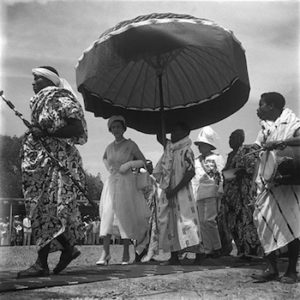
*On this date in 1957, Ghana became the first African nation to achieve freedom from colonial rule, 73 years after The Berlin Conference convened. That plan marked the high point of white European competition for African territory, a process commonly known as the Scramble for Africa.
In January 1957, the British Parliament passed the Ghana Independence Act. In the first week of March that year, the National Assembly of Ghana issued an independence proclamation and joined the United Nations. The dominant political party of the new nation was the Convention People’s Party (CPP), headed by Kwame Nkrumah, the country’s first prime minister. On February 24, 1966, Nkrumah, who was on a state visit to China, was overthrown in a military coup.
He took refuge in Guinea, but his supporters in Ghana were arrested, and Soviet and Chinese technicians, whom Nkrumah had brought in, were expelled from the country. For the next three years, the National Liberation Council ruled Ghana. In 1969, power was transferred, under a new constitution, to a civilian government headed by Kofi A. Busia. Busia was ousted by another army coup in 1972, headed by Colonel Ignatius K. Acheampong.
He was forced to resign in 1978, giving way to General Frederick W. Akuffo, who ruled for less than a year before Flight Lieutenant Jerry John Rawlings overthrew him. Dedicated to uprooting corruption, Rawlings had both Acheampong and Akuffo executed for that offense. In September 1979, Rawlings stepped down in favor of an elected civilian president, Hilla Limann. When economic conditions worsened, Limann was deposed in a second coup by Rawlings on December 31, 1981.
A referendum in April 1992 reestablished constitutional government, and Rawlings, running as a civilian, won the presidency in multiparty elections in November. He was reelected fifteen years later. As of 2019, The President of Ghana is Nana Akufo-Addo.